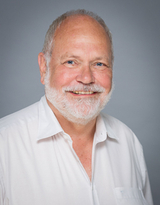Academic CV
Summary
MSc and PhD in biology, specialising in hydrobiology and fisheries science. Senior researcher in aquatic ecology. Head of the Mangrove Ecology Working Group. Deputy director of the ZMT 1993-2011. Since 2014 Professor Emeritus for Marine Ecology at the University of Bremen. More than 20 years working experience in the tropics, especially in South America (Brazil). Coordinator of several integrated international research projects. Specialist in tropical aquaculture, fisheries science, floodplain and mangrove ecology. Author of a significant number of scientific publications. Editor and co-editor of international scientific journals. Academic teaching experience in fisheries science and tropical aquatic ecology. Supervisor of numerous MSc and PhD students.
Education and academic titles
- MSc in biology, escpecially hydrobiology and fisheries sciences (Univ. Hamburg) (1976)
- PhD in hydrobiology and fisheries sciences, Univ. Hamburg (1982)
- Habilitation, Univ. Hamburg (1989)
- Professor for Basic and Applied Marine Ecology, Univ. Bremen, 1993
Employment record
Since April 2014
Retired
1993 - 14
GERMANY
Leibniz Center for Tropical Marine Ecology, Bremen
Professor for basic and applied marine ecology, University Bremen
1989 - 92
BRAZIL
Max-Planck Institute for Limnology, Working Group for Tropical Ecology, Plön
Scientist of the Max-Planck Institute for Limnology
Head of the Max-Planck working group at INPA, Manaus
Coordination of an interdisciplinary research project on fish ecology in neotropical inundated forests. Financed by the German BMFT
1982 - 88
GERMANY
Institute for Hydrobiology and Fisheries Science of the University of Hamburg
Assistant professor
1982 - 87
GERMANY
Research projects at the university on eco-physiological adaptation strategies of neotropical fish species to oxygen depletion.
Planning and supervision of research projects on nutrition physiology of South American fish culture candidates. This includes projects on protein demand and digestibility, on the use of agricultural by-products in fish nutrition, on histological diagnoses in fish nutritional experiments, and on the estimation of the influence of diets on digestive enzymes of fish.
Additional supervision of M.Sc. and Ph.D. thesis on adaptations of different fish species to survive low oxygen concentrations.
1980 - 82
GERMANY
German Science Foundation (DFG)
Scientists at the Institute for Hydrobiology and Fisheries Science of the University of Hamburg
Elaboration of the Brazilian fish culture project
1976 - 80
BRAZIL
National Institute for Amazon Research (INPA) at Manaus
Coordinator of the INPA's aquaculture project. Head of Division
Responsibility for all activities in relation to the aquaculture project. Responsible for the construction of an aquaculture pilot station. Investigation of the potential of some Amazonian fishes for warm water aquaculture. Research on reproduction and nutrition of these fish species
Member of editorial boards
- Amazoniana
- Ecotropica
- Journal of Applied Ichthyology
- Journal of Aquacultur in the Tropics
- Studies on Neotropical Fauna and Environement
Publikationsliste zum Download
Wissenschaftliche Abschlussarbeiten
Saint-Paul, U. (1988) Perspektiven der lateinamerikanischen Aquakultur. Ökophysiologische Untersuchungen zur Eignung ausgewählter Serrasalmidae für die tropische Teichkultur, Habil. thesis, Univ. Hamburg, Hamburg, 95 pp.
Saint-Paul, U. (1982) Ökologische und physiologische Untersuchungen an dem Amazonasfisch Tambaqui Colossoma macropomum (Cuvier 1818) im Hinblick auf seine Eignung für die tropische Fischzucht (Pisces, Serrasalmidae), Ph. D. thesis , Univ. Hamburg, 220 pp. Abstract






